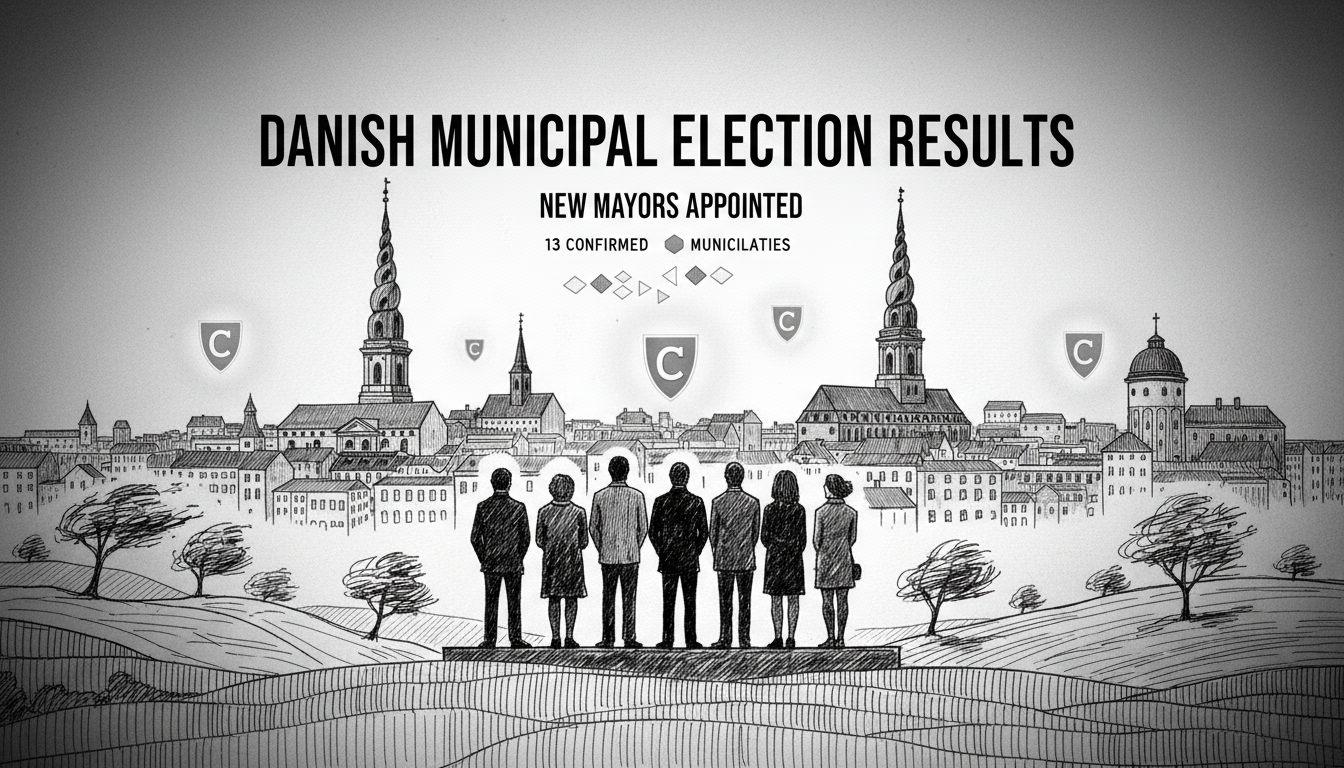Denmark's political landscape is shifting as the first mayoral appointments emerge from Tuesday's municipal elections. Thirteen municipalities have confirmed their leadership positions so far. The Conservative Party secured seven mayoral seats in this initial round. The Social Democrats claimed two positions. These early results provide the first clear picture of Denmark's local political direction.
Political negotiations continue across municipalities. The final decisions will come during constitutional meetings scheduled for early December. All new municipal councils and city councils will officially begin their terms at the start of the next year.
Denmark's municipal elections occur every four years. Voters directly choose their local representatives. These elections significantly impact daily life for Danish residents. Mayors oversee critical services like schools, elderly care, and local infrastructure.
The current results show several interesting patterns. Conservative candidates achieved success in diverse municipalities. They won positions from affluent suburbs to rural island communities. The party's strong performance suggests voters trust their local governance approach.
Several mayors secured reelection, indicating public satisfaction with their leadership. New faces also emerged in key positions. These changes could bring fresh perspectives to local administration.
International residents should understand how these elections affect them. Municipal governments handle integration programs, language courses, and local community services. New leadership might adjust these offerings based on their political priorities.
The confirmed mayoral appointments include:
Billund will continue with Stephanie Storbank from the Liberal Party
Brøndby welcomes Maja Højgaard from the Social Democrats
Dragør retains Kenneth Gøtterup from the Conservative Party
Fanø keeps Frank Jensen from the Social Liberals
Gentofte continues with Michael Fenger from the Conservative Party
Holbæk maintains Christina Krzyrosiak Hansen from the Social Democrats
Kalundborg continues with Martin Damm from the Liberal Party
Kerteminde elects Michael Nielsen from the Conservative Party
Lyngby-Taarbæk retains Sofia Osmani from the Conservative Party
Læsø chooses Niels Odgaard from the Conservative Party
Samsø selects Per Urban from the Conservative Party
Struer continues with Marianne Bredal from the Liberal Party
Vallensbæk keeps Henrik Rasmussen from the Conservative Party
These appointments reflect Denmark's tradition of stable political transitions. The country's decentralized governance model gives municipalities substantial autonomy. Local elections directly shape how communities develop and function.
Political analysts note the Conservative Party's strong showing indicates voter confidence in their municipal management approach. The party has emphasized practical solutions over ideological positions in local governance. This strategy appears resonating with Danish voters across different regions.
What do these results mean for Denmark's future political direction? Local elections often serve as indicators for national political trends. The Conservative success might influence their approach in upcoming national elections. The Social Democrats will likely analyze their performance to adjust their local campaign strategies.
The completed appointments represent just the beginning. More municipalities will announce their leadership in coming weeks. These decisions will complete the picture of Denmark's new local political landscape.

